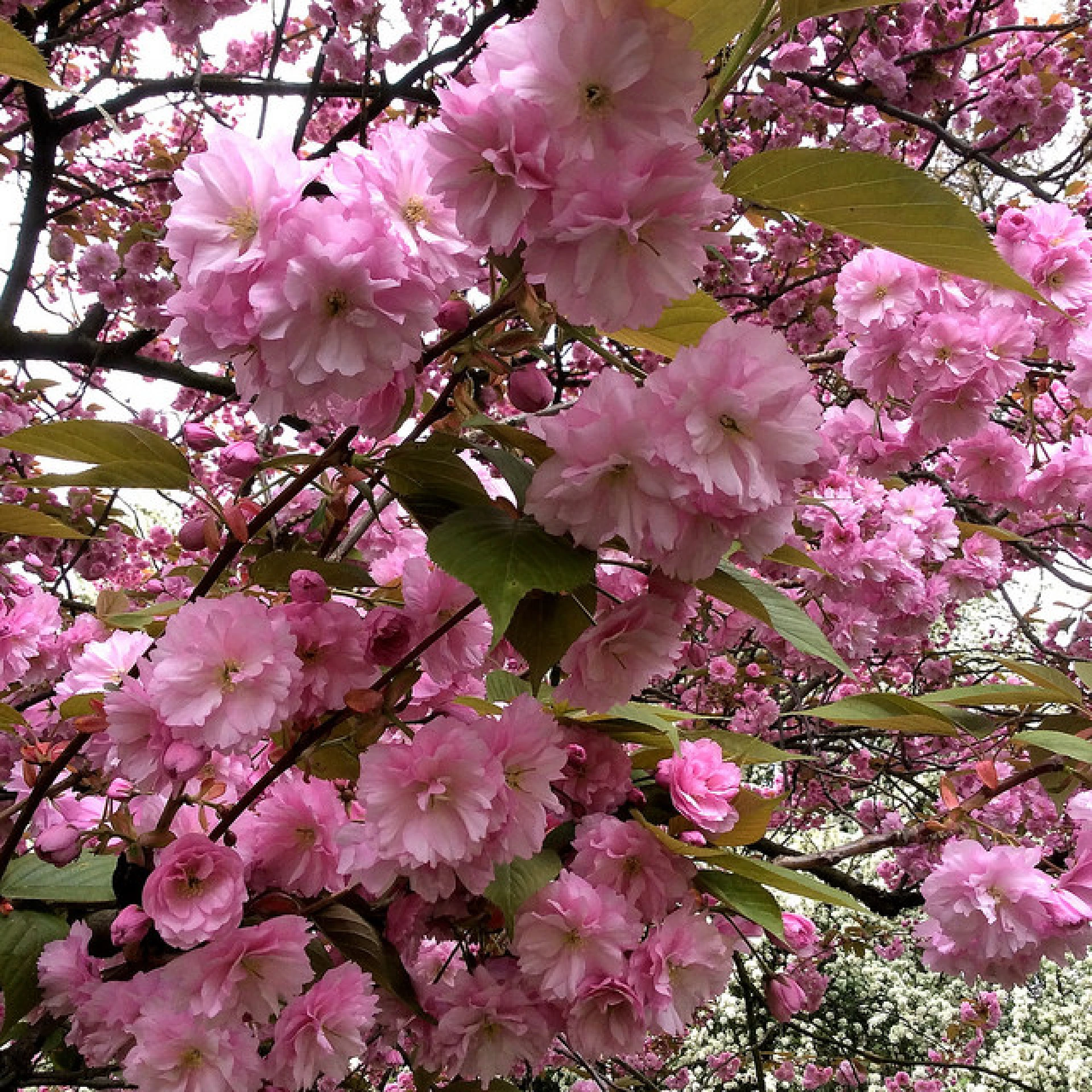
Japan - An Amazing Destination
Japan - An Amazing Destination
 Questions you may ask:
Q) Where is Japan ?
A) Japan is an archipelago of islands situated in north east Asia between the North Pacific Ocean and the Sea of Japan. The country is 1.5 times the size of Britain.
Q) Capital of Japan?
A) Tokyo is the capital city of Japan.
Q) What is the time difference?
A) Japan is 9 hours ahead of Greenwich mean time (GMT)
Q) What is Japan’s International Airport called?
A) Japan has 4 International airports
1) Tokyo -Narita (NRT) 37 miles out side of Tokyo connecting to Express Narita one hour, Sky Line forty seven minutes, Bus ninety minutes
2) Tokyo – Haneda (HND) Connecting Hamamatsu-co monorail seventeen minutes
3) Osaka -Kansai (KIX) located on the man made island about 31 miles south of Osaka, connect to nearby city Osaka, Kyoto, Kobe by Express train or bus.
4) Central Japan (NGO) Is located between Tokyo and Osaka
Q) How long are the Flights to Japan?
A) Quickest direct flying time is about 11 hours and 30 minutes. With direct flights from London to Natita International Airport with British Airways, direct flights from London to Haneda International Airport with Japan Airlines, All Nippon Airways and British Airways with a selection indirect flights, so offering multi centre holidays.
Q) When is the best time to visit Japan?
A) Japan has four distinctive seasons and any time is the best time as Japan offers so much.
1) late March and April is often considered the best time to visit Japan because of the beautiful stunning cherry blossoms will be in full bloom in most area’s of the country and the weather is pleasant.
2) Summer - June: The rainy season visits most parts of Japan except Hokkaido. It does not rain constantly every day, the weather tends to be overcast and dreary for around about a month .
3) August: Very hot and humid in most of Japan. Travel activity is high during the entire month due to summer school holidays, but is especially intensive during the Obon (13th -15th) in August. Late August and September is a typhoon season and average number of landfall is 2-3 times annually.
4 ) Late October to November is also a good time as the weather is relatively dry and mild, and the autumn colours are spectacular in many parts of the country.
Q) When are the holidays and special days, bank holidays and are shops open or closed?
A) Christmas: Business as usual. Easter: Business as usual. New Year : The Japanese celebrate the New Year in a big way. Many shops, restaurants and tourist attractions are closed from 31st December to 3rd January. Golden Week: The Golden Week is a collection of four national holidays from 29th April to 5th May. In combination with well placed weekends, the Golden Week becomes one of Japan's busiest holiday season.
Q) Do we need a Visa?
A) The UK has visa-exemption arrangements with Japan, and its citizens may stay up to 90 days as tourist. Visitors must produce a passport valid during the entire period of their stay.
Visitors must declare their belongings on arrival. Customs declaration forms are available on the plane, ship, or customs office. Personal effects and unaccompanied baggage for personal use are free of duties and/or taxes within specified allowances, as is professional equipment to be used during the stay. Three 760ml bottles of spirits and 400 cigarettes are permitted. Any currency is allowed to be imported but anything in excess of 1,000,000 yen must be declared.
For further information please contact the Embassy or Consulate General of Japan nearest you for more information and advice.
Q) What is the health and safety like and will I need inoculations?
A) Japanese citizens are generally very law abiding, making Japan one of the safest countries in the world for visitors. Emergency telephone numbers in Japan are police: 110 and fire/ambulance: 119. Police boxes as knows as koban are also located at major intersections in most residential areas.
Tap water is safe to drink and mineral water, including major imported bottled water, is sold almost everywhere. The electrical plugs are flat two pin plugs , so it is advised to purchase a plug adapter beforehand. There are no inoculations required for entering Japan from anywhere around the world. The medical systems and facilities in Japan are well established and visitors can expect to receive a high standard of medical treatment, should problems arise. If you fall ill they will be expected to be paid in full for any treatment received so travel insurance is essential. Hospitals with English speaking doctors can be found in most major cities. Importantly you should make sure you have the correct medical travel insurance and don’t travel with out it.
Q) What is the sanitation like and should I be worried?
A) Japan is said to be the cleanest country in the region – even streets, buses and subway carriages in the capital Tokyo, for the most part, are spotlessly clean. Toilet facilities are spotless. Food poisoning, stray dogs, malaria, tropical diseases and other health issues associated with south east Asia are not an issue when visiting Japan.
Q) Can I use my Mobile and and is there access to Telephones?
A) Mobiles Japan is very advanced when it comes to technology, but with mobile phone technology can be different mean not all mobiles from the UK or European countries will function in Japan. 3G models should work in Japan but to be absolutely sure you should check with your mobile service provider before travelling. Mobile rental shops can be found at international airports such as Narita and Kansai Airports. International call need to made from public telephone
The country code for Japan is +81. If making a direct overseas call can only be made from a public telephone displaying an International and Domestic Telephone sign. These phones are found at airports, stations, hotels and other outlets. Prepaid telephone cards cost 1,000 yen from vending machines, kiosks at train stations, and local shops these are useful for making international calls. Most hotels offer internet, check when booking.
Q ) What is the currency used in Japan?
A) THE Yen is the unit currency in Japan, you will find at international airports, currency exchange counters are usually open during normal office hours. The exchange rate fluctuates daily.
Travellers cheques are accepted by leading banks, hotels and stores in major cities. International credit cards are also accepted. However, you will need to remember credit/debit cards are not as widely used as in the UK, so you should always travel with some cash.
Also foreign credit and cash cards can be used at Post Office and Seven Bank ATMs throughout Japan.
Q) Is Japan Expensive?
A) Like many countries, Japan can be an expensive place to visit if you don't plan ahead, however there are a wide variety of tours, Hotels resorts and budget accommodation options, transportation passes and sightseeing pre-booked discounts, which help to make Japan an affordable destination for even the most budget conscious traveller. It is worthwhile taking the time to decide which options will best suit your stay and how much you need to pre book to save you before you travel.
For example today the yen is 137.00 Yen = £1
Q) What language is spoken?
A) Japanese is the official language of Japan. English is compulsory at school, so most Japanese people can speak some English but please speak slowly, using basic vocabulary. Signage on the airports, stations, hotels and at tourist attractions is written in English as well as Japanese so you will find it easy for travelling around.
Questions you may ask:
Q) Where is Japan ?
A) Japan is an archipelago of islands situated in north east Asia between the North Pacific Ocean and the Sea of Japan. The country is 1.5 times the size of Britain.
Q) Capital of Japan?
A) Tokyo is the capital city of Japan.
Q) What is the time difference?
A) Japan is 9 hours ahead of Greenwich mean time (GMT)
Q) What is Japan’s International Airport called?
A) Japan has 4 International airports
1) Tokyo -Narita (NRT) 37 miles out side of Tokyo connecting to Express Narita one hour, Sky Line forty seven minutes, Bus ninety minutes
2) Tokyo – Haneda (HND) Connecting Hamamatsu-co monorail seventeen minutes
3) Osaka -Kansai (KIX) located on the man made island about 31 miles south of Osaka, connect to nearby city Osaka, Kyoto, Kobe by Express train or bus.
4) Central Japan (NGO) Is located between Tokyo and Osaka
Q) How long are the Flights to Japan?
A) Quickest direct flying time is about 11 hours and 30 minutes. With direct flights from London to Natita International Airport with British Airways, direct flights from London to Haneda International Airport with Japan Airlines, All Nippon Airways and British Airways with a selection indirect flights, so offering multi centre holidays.
Q) When is the best time to visit Japan?
A) Japan has four distinctive seasons and any time is the best time as Japan offers so much.
1) late March and April is often considered the best time to visit Japan because of the beautiful stunning cherry blossoms will be in full bloom in most area’s of the country and the weather is pleasant.
2) Summer - June: The rainy season visits most parts of Japan except Hokkaido. It does not rain constantly every day, the weather tends to be overcast and dreary for around about a month .
3) August: Very hot and humid in most of Japan. Travel activity is high during the entire month due to summer school holidays, but is especially intensive during the Obon (13th -15th) in August. Late August and September is a typhoon season and average number of landfall is 2-3 times annually.
4 ) Late October to November is also a good time as the weather is relatively dry and mild, and the autumn colours are spectacular in many parts of the country.
Q) When are the holidays and special days, bank holidays and are shops open or closed?
A) Christmas: Business as usual. Easter: Business as usual. New Year : The Japanese celebrate the New Year in a big way. Many shops, restaurants and tourist attractions are closed from 31st December to 3rd January. Golden Week: The Golden Week is a collection of four national holidays from 29th April to 5th May. In combination with well placed weekends, the Golden Week becomes one of Japan's busiest holiday season.
Q) Do we need a Visa?
A) The UK has visa-exemption arrangements with Japan, and its citizens may stay up to 90 days as tourist. Visitors must produce a passport valid during the entire period of their stay.
Visitors must declare their belongings on arrival. Customs declaration forms are available on the plane, ship, or customs office. Personal effects and unaccompanied baggage for personal use are free of duties and/or taxes within specified allowances, as is professional equipment to be used during the stay. Three 760ml bottles of spirits and 400 cigarettes are permitted. Any currency is allowed to be imported but anything in excess of 1,000,000 yen must be declared.
For further information please contact the Embassy or Consulate General of Japan nearest you for more information and advice.
Q) What is the health and safety like and will I need inoculations?
A) Japanese citizens are generally very law abiding, making Japan one of the safest countries in the world for visitors. Emergency telephone numbers in Japan are police: 110 and fire/ambulance: 119. Police boxes as knows as koban are also located at major intersections in most residential areas.
Tap water is safe to drink and mineral water, including major imported bottled water, is sold almost everywhere. The electrical plugs are flat two pin plugs , so it is advised to purchase a plug adapter beforehand. There are no inoculations required for entering Japan from anywhere around the world. The medical systems and facilities in Japan are well established and visitors can expect to receive a high standard of medical treatment, should problems arise. If you fall ill they will be expected to be paid in full for any treatment received so travel insurance is essential. Hospitals with English speaking doctors can be found in most major cities. Importantly you should make sure you have the correct medical travel insurance and don’t travel with out it.
Q) What is the sanitation like and should I be worried?
A) Japan is said to be the cleanest country in the region – even streets, buses and subway carriages in the capital Tokyo, for the most part, are spotlessly clean. Toilet facilities are spotless. Food poisoning, stray dogs, malaria, tropical diseases and other health issues associated with south east Asia are not an issue when visiting Japan.
Q) Can I use my Mobile and and is there access to Telephones?
A) Mobiles Japan is very advanced when it comes to technology, but with mobile phone technology can be different mean not all mobiles from the UK or European countries will function in Japan. 3G models should work in Japan but to be absolutely sure you should check with your mobile service provider before travelling. Mobile rental shops can be found at international airports such as Narita and Kansai Airports. International call need to made from public telephone
The country code for Japan is +81. If making a direct overseas call can only be made from a public telephone displaying an International and Domestic Telephone sign. These phones are found at airports, stations, hotels and other outlets. Prepaid telephone cards cost 1,000 yen from vending machines, kiosks at train stations, and local shops these are useful for making international calls. Most hotels offer internet, check when booking.
Q ) What is the currency used in Japan?
A) THE Yen is the unit currency in Japan, you will find at international airports, currency exchange counters are usually open during normal office hours. The exchange rate fluctuates daily.
Travellers cheques are accepted by leading banks, hotels and stores in major cities. International credit cards are also accepted. However, you will need to remember credit/debit cards are not as widely used as in the UK, so you should always travel with some cash.
Also foreign credit and cash cards can be used at Post Office and Seven Bank ATMs throughout Japan.
Q) Is Japan Expensive?
A) Like many countries, Japan can be an expensive place to visit if you don't plan ahead, however there are a wide variety of tours, Hotels resorts and budget accommodation options, transportation passes and sightseeing pre-booked discounts, which help to make Japan an affordable destination for even the most budget conscious traveller. It is worthwhile taking the time to decide which options will best suit your stay and how much you need to pre book to save you before you travel.
For example today the yen is 137.00 Yen = £1
Q) What language is spoken?
A) Japanese is the official language of Japan. English is compulsory at school, so most Japanese people can speak some English but please speak slowly, using basic vocabulary. Signage on the airports, stations, hotels and at tourist attractions is written in English as well as Japanese so you will find it easy for travelling around.
Some words to get you started Japanese > English
Ohayou gozaimasu = Good morning
Kon'nichiwa = Good afternoon
Kon'banwa = Good evening
Oyasumi nasai = Good night
Sayounara = Good bye
Sumimasen = Excuse me
Wakarimasen = I don't understand
Arigatou = Thank you
Hai = Yes
Iie = No
Q) What is the food like? A) You will find lots of local cuisines together with traditional Japanese dishes such as sushi and tempur. But not to disappoint the western visitors you will find a wide variety of food is widely available in Japan, yes!! there are McDonald's, KFC, Subway, Domino Pizza, TGI Fridays, Starbucks in Japan. But tasting the local cuisine is one of the highlights and visitors eating around Japan will find it fun with Sushi and sashimi being the best-known types of Japanese food, but not liked a lot raw fish is by no means the only thing on the menu. There is always a wide variety of dishes to try, including yakitori (barbecued chicken kebabs), tendon (rice topped with deep-fried prawns), ramen, udon and soba (Japanese noodles), shabu shabu (beef and vegetable slices cooked in a light broth). Until 150 years ago eating meat was shunned and vegetarians will find plenty to eat on the menu – Japanese cooking is heavily reliant on seafood, seasonal vegetables and products from soya beans.
Q) What is it like tipping in Japan? A) Individual tipping is not common in Japan. Rather, in lieu of tipping, a 10 to 15 percent service charge is added to bills at higher-priced hotels and restaurants. At higher-end Japanese inns a 10 to 20 percent service charge is added. It is not expected but you can, however, tip tour guides and the head maid at a traditional Japanese inn if special requests were made. Guests should present the head maid with an envelope containing the tip at the beginning of your stay.
Q) It is true spa and treatments are a must in Japan? A) They say Onsen a Japanese natural hot springs is must experiences when visiting Japan. Most of the ryokan ( Japanese style inn) have beautiful onsen. Onsen are the most popular way for Japanese people to relax! Onsen are almost everywhere in Japan, so even if you're only going to Tokyo you can easily make a day trip to an onsen. Nowhere is a better place than an onsen to forget your hectic daily life, relax, and soothe and rejuvenate your body and mind. Here are some rules, manners and advice on how to enjoy onsen: 1) Get naked, 2) Rinse off, and 3) Soak and relax. Finishing on this amazing note, if you have any questions or would like to visit Japan please do call me on 01323 844630 or Mobile 07913 304716. Email : debbie@designertravel.co.uk
Your Holiday Starts Now
Why not chat to one of our experts!
Start your holiday now with a conversation with one of our Asia Personal Travel Experts!
We'll call you back
Leave us your contact details and we will be in touch.
Newsletter Signup
More Articles About Asia
-
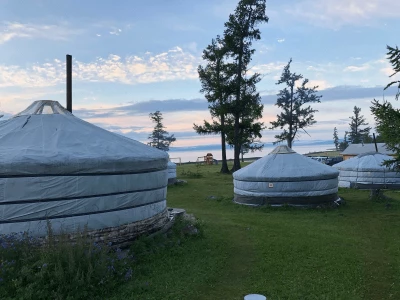
The Power of Nature in Mongolia
I have been fortunate enough to have both lived and travelled around Mongolia over a period of ten -
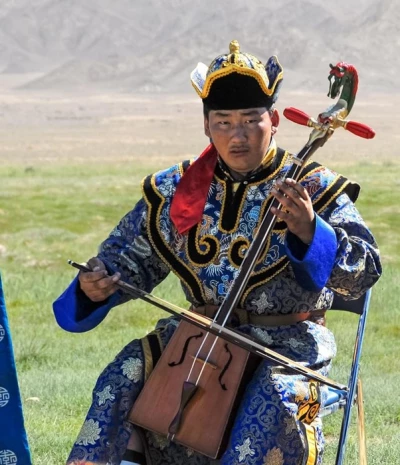
A Taste of Mongolian Culture and Traditions
Mongolia is a country rich in traditional heritage, so much so that it is almost impossible to exper -
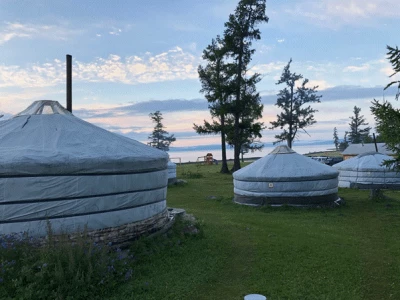
Seven Wonders of Mongolia
The world is indeed becoming a smaller place, but as our travel capabilities improve, the amount of -
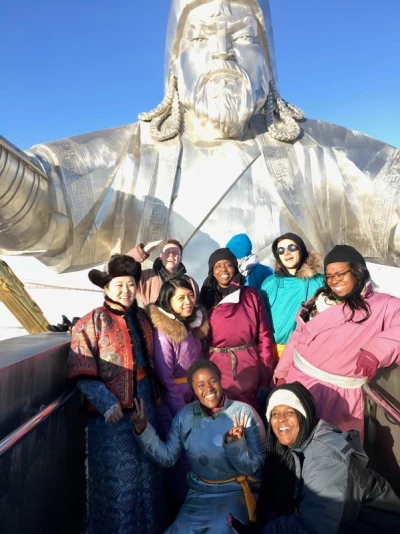
Travel to Mongolia - six things you should know before you go
1. Go with the right people! Anyone can fly into Ulaanbaatar and see the city sights like Gandan, Za -
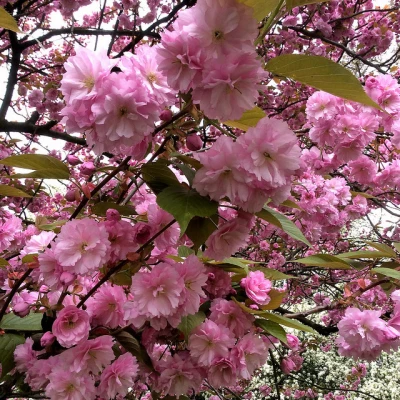
Japan Golden Route
The best way to sample the accommodation is by booking an escorted tour and we have a great selectio -
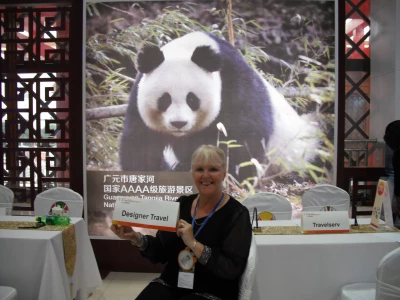
Discover China
My visit to China in September 2015 was totally amazing; I was with a group of travel agents and we
My Articles
-
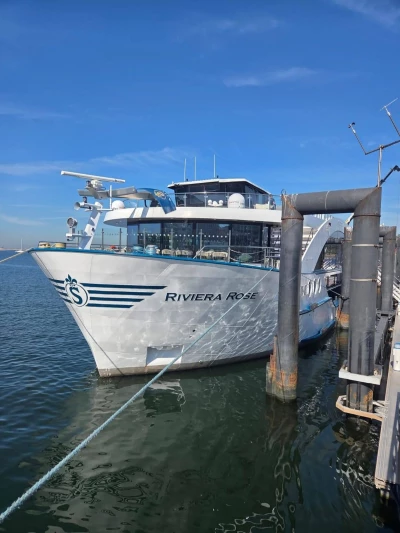
Riviera Rose Cruise: Highlights of the Douro Valley and Salamanca
Riviera Rose Cruise: Highlights of the Douro Valley and Salamanca Date: 30th September to 8th Octobe -

Sustainable Tourism
You all have probably heard of sustainable tourism. This concept is relatively new but we are all ge -
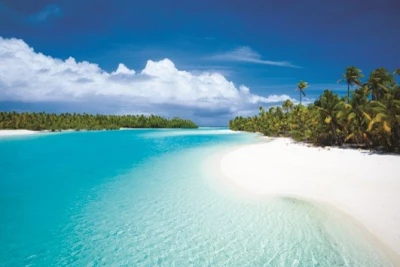
January Blues
January Blues time to Let the Sun Shine in, January is a Month of cold weather, dark mornings we all -
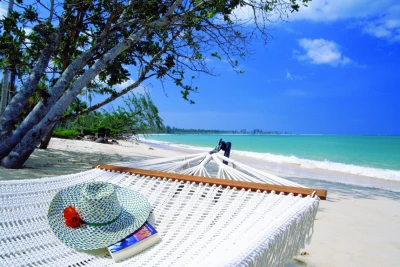
Land of Sunshine Smiling Welcomes, Food and Culture
Thailand has long been known for its amazing beaches, great value and diversity. What really separa -
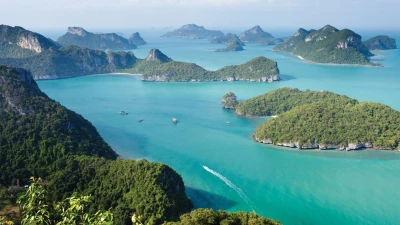
Best Times to Visit Thailand
I am always being asked when is the Best time to visit Thailand With so much to see and do Thailand
